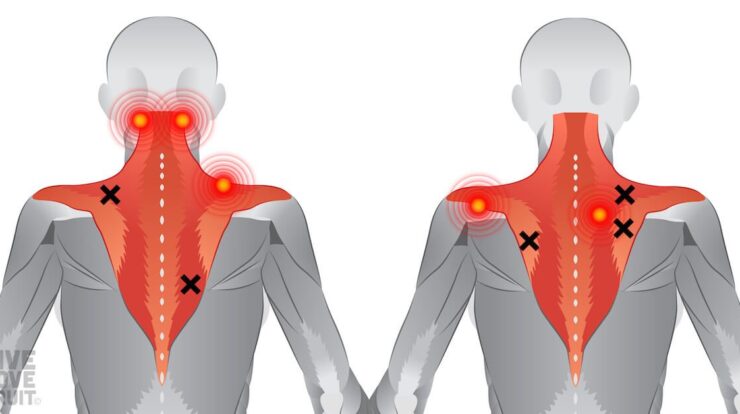
Minnesota State Senator Nicole Mitchell has made a significant impact on the state’s political landscape. Her unwavering commitment to her constituents and her dedication to progressive values have earned her a reputation as a tireless advocate for the people of Minnesota.
Throughout her career, Senator Mitchell has consistently fought for policies that promote education, healthcare, and economic development. Her passion for improving the lives of her constituents is evident in her work on legislation that addresses affordable housing, environmental protection, and social justice issues.
Political Career of Nicole Mitchell
Nicole Mitchell is a Democratic politician who has served as a member of the Minnesota Senate since 2011. She represents District 67, which includes portions of the cities of St. Paul and Minneapolis.
During her time in the Senate, Mitchell has held several key positions and responsibilities. She is the current chair of the Senate Commerce and Consumer Protection Committee and is a member of the Senate Judiciary and Public Safety Committee, the Senate Transportation Committee, and the Senate Rules and Administration Committee.
Mitchell has been a strong advocate for progressive policies and has worked to expand access to healthcare, education, and affordable housing. She has also been a vocal critic of the Republican-controlled legislature and has called for greater bipartisanship in the state.
Major Accomplishments and Initiatives
- Authored and passed legislation to expand access to affordable housing
- Led the effort to pass a bill that increased funding for public education
- Chaired a committee that investigated the use of excessive force by police
- Co-authored a bill that created a new state agency to regulate the insurance industry
Awards and Recognitions, Minnesota state senator nicole mitchell
- 2019 Legislator of the Year Award from the Minnesota Association of Realtors
- 2018 Public Service Award from the Minnesota Council of Nonprofits
- 2017 Champion of Justice Award from the Minnesota Justice Foundation
Legislative Priorities of Nicole Mitchell
Nicole Mitchell’s primary legislative priorities include education, healthcare, economic development, and criminal justice reform.
Education
Mitchell believes that every child deserves access to a quality education. She has worked to increase funding for public schools and has supported policies that aim to reduce class sizes and improve teacher pay.
Healthcare
Mitchell is a strong advocate for expanding access to affordable healthcare. She has supported legislation that would create a single-payer healthcare system in Minnesota and has worked to lower the cost of prescription drugs.
Economic Development
Mitchell believes that Minnesota needs to invest in its economy to create jobs and grow the state’s tax base. She has supported policies that aim to attract new businesses to the state and has worked to improve the state’s infrastructure.
Criminal Justice Reform
Mitchell is a strong advocate for criminal justice reform. She has supported legislation that would reduce the number of people in prison and has worked to improve the treatment of people who are incarcerated.
Nicole Mitchell’s Constituency and Representation
Nicole Mitchell represents District 67, which includes portions of the cities of St. Paul and Minneapolis. The district is home to a diverse population of over 60,000 people.
Mitchell is a strong advocate for her constituents and has worked to address their concerns. She has held town hall meetings and has met with constituents one-on-one to hear their concerns.
Mitchell has also worked to advocate for the needs of her community. She has supported legislation that would provide funding for affordable housing and has worked to improve the state’s public transportation system.
Nicole Mitchell’s Political Affiliations and Collaborations
Nicole Mitchell is a member of the Democratic Party and is a member of the Minnesota Democratic-Farmer-Labor Party (DFL).
Mitchell has worked with other elected officials and organizations to advance her legislative agenda. She is a member of the National Black Caucus of State Legislators and the National Women’s Caucus of State Legislators.
Mitchell has also worked with organizations such as the Minnesota AFL-CIO and the Minnesota Council of Nonprofits to advocate for policies that benefit working families and low-income Minnesotans.
Nicole Mitchell’s Background and Personal Life
Nicole Mitchell was born in St. Paul, Minnesota. She graduated from the University of Minnesota with a degree in political science and went on to earn a law degree from the University of St. Thomas.
Mitchell worked as an attorney before entering politics. She is married and has two children.
Nicole Mitchell’s Impact and Legacy

Nicole Mitchell has had a significant impact on the state of Minnesota. She has been a strong advocate for progressive policies and has worked to improve the lives of all Minnesotans.
Mitchell’s legacy will likely be one of a politician who fought for the people. She has been a tireless advocate for her constituents and has worked to make Minnesota a better place to live.
Ultimate Conclusion
As Senator Mitchell continues her service in the Minnesota Senate, her unwavering dedication to her constituents and her commitment to progressive values will undoubtedly continue to shape the state’s political landscape. Her legacy as a champion for the people of Minnesota will undoubtedly endure for years to come.
FAQ Resource: Minnesota State Senator Nicole Mitchell
What are Senator Mitchell’s key legislative priorities?
Senator Mitchell’s key legislative priorities include education, healthcare, economic development, affordable housing, environmental protection, and social justice.
How does Senator Mitchell engage with her constituents?
Senator Mitchell regularly holds town hall meetings, attends community events, and responds to constituent concerns through email, phone, and social media.
What are some of Senator Mitchell’s notable accomplishments?
Senator Mitchell has been instrumental in passing legislation that expands access to affordable healthcare, increases funding for public education, and protects the environment.





